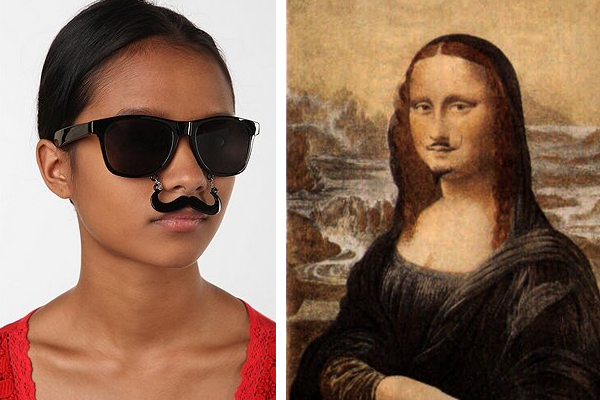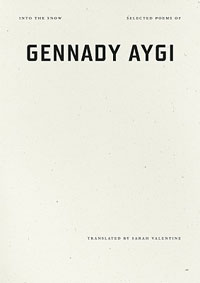Now Available: David Lynch’s solo album Crazy Clown Time
Pitchfork says: “Unfortunately, none of these songs actually feel like songs. Only a few have choruses or any significant chord changes. Instead, they’re set pieces, which makes sense: Lynch’s films often seem to be more about luxuriating in his atmosphere than about following his plots, and that carries over to this music as well.”
Paste says: “What a mess…Crazy Clown Time, recorded in Lynch’s personal studio with engineer Big Dean Hurley, isn’t exactly fart-blank, but this visual master shouldn’t quit his day job.”
The Atlantic says: “Lynch dares to disturb, and that requires a bravery that cares not for our comfort, but for the integrity of the art itself.”
NPR says: “It sounds absurd, yes, and Crazy Clown Time … won’t be for everyone. But you can be sure that no two people will come away with the same experience of this record, and there aren’t many artists working today who can make that claim.”
ARTIFICE 4 RELEASE / APOCALYPSE / LETTERS FROM THE LIVING TO THE DEAD
“Kafka Writes to Romeo / Romeo Writes Back,” by Catherine Gammon; video by Meghan Lamb
Artifice Magazine is releasing its fourth issue in Chicago this weekend
There will be readings and short films and disembodied voices
If you are in or nearby Chicago we would love to see you there
Here are the details:
Elegant Mr. Gallery
1355 N Milwaukee Ave, Chicago
November 12
8 to midnight
Here is where you can find our fourth issue, otherwise
A Survey of 90s + Early-Internet Love Poetry

Prufrock revisited

In 1919, Marcel Duchamp drew a mustache on Mona Lisa and titled it “L.H.O.O.Q.,” phonetically Elle a chaud au cul, or “she has a hot ass,” and more loosely, “there is fire down below.” He made multiple versions, including one called “L.H.O.O.Q. Shaved”; that her mustache was not shaved directs our attention elsewhere. It is a cynical piece, as with most of his work, though if one considers the fury of cameras as cicadas coming out in the Louvre, their masters’ faces sharing the frame with hers, then maybe that’s warranted. In 2011, Urban Outfitters would sell a sort of non-functional shade (Sunstache, $8.00) adorned with a plastic mustache, mostly a gag gift. Its wearers would be seen going to or coming back from a party, ostentatiously on public transportation in that loud oblivious yet confident twenty-somethings manner, saying to the world #toomuchfreedom. The one time I went to the Louvre, I waited in line for three hours while the soft balm of French spoken by young girls behind me inspired me to “hold on” a little longer for the fleshy canvases awaiting inside. To render light loyally finding the full contour of an arse ends the argument of what is art. That night, I ate a crepe along the Seine, gazed up at Notre Dame, and felt an odd bulge growing on my back; some hours later, three Irishmen would find me in our hostel room, on the top bunk, another odd bulge growing from under the sheets as I imagined the slender pale hands which had made my crepe, reconfiguring each finger around my poetry. I was sure to peek, and did, inside the Mona Lisa room for good measure, of grave responsibility almost. Her smile could only flicker in between mounds of black asian hair in front of me, the entropy of a million languages as a car bomb under the Tower of Babel. In the room the asians come and go, talking of Michelangelo (which rhymes better than da Vinci). I’ve always wondered where that winding road past her right shoulder leads to, ideally a monk’s hut, if we consider the asian landscape-y vibe, paper light and flecked with ink. “Let us go then, you and I,” is the solicitation to come back to my hostel which I never used. She handed me the crepe, said voila and smiled. And should I then presume? And how should I begin?
Into the Snow
 Into the Snow
Into the Snow
By Gennady Aygi
Translated by Sarah Valentine
Wave Books, 2011
128 pages / $16 Buy from Wave Books
“Sidelined in a mass-media, technology-driven culture, the American poet seems to have a slim chance of connecting with an audience, and even less of a chance to effect large-scale change through poetry. But elsewhere in the world many poets…continue to write poetry at the risk of losing their lives and livelihoods. For them poetry is an ethical act, an act of humanity, regardless of the cost.”
– translator Sarah Valentine, in her Introduction to Gennady Aygi’s Into the Snow
Gennady Aygi’s collection of poems all speak of simple people and minimal places. Most involve a specific location, like a clearing or a forest. The simplicity is an illusion that he skillfully employs to challenge the reader to see more. The metaphors are powerful in their simplicity: as Aygi describes a “clearing in the field,” we may first imagine a meadow, but it could be that he’s referring to a transformation in the political climate—moving us from a tangible location to an intangible concept.
November 7th, 2011 / 12:00 pm
Well this last line from John Banville’s review of Joan Didion’s new memoir Blue Nights, I like it:
“However, it is most profound, and most provocative, at another level, the level at which the author comes fully to realize, and to face squarely, the dismaying fact that against life’s worst onslaughts nothing avails, not even art; especially not art.”
A ham is proud of cocoanut.
A CLOTH.
Enough cloth is plenty and more, more is almost enough for that and besides if there is no more spreading is there plenty of room for it. Any occasion shows the best way.
….
A TIME TO EAT.
A pleasant simple habitual and tyrannical and authorised and educated and resumed and articulate separation. This is not tardy.
….
APPLE.
Apple plum, carpet steak, seed clam, colored wine, calm seen, cold cream, best shake, potato, potato and no no gold work with pet, a green seen is called bake and change sweet is bready, a little piece a little piece please.
A little piece please. Cane again to the presupposed and ready eucalyptus tree, count out sherry and ripe plates and little corners of a kind of ham. This is use.
[from Tender Buttons by Gertrude Stein]
“POETRY OPENS THE NIGHT TO DESIRE’S EXCESS”
STEP TWO ON A SERIES OF POSTS DEVELOPING A THEORETICAL-FICTION TOWARDS WHAT I WILL COIN A ‘RECKLESS UTOPIANISM’
Sunday Service: Michael Robbins Poem
Money Bin
I got a tattoo of God. You can’t see it
but it’s everywhere. If I seem out of it,
do the math. I was put on earth.
And then you were, making up your feet
as you went along. New thinspo clanks the spank
bank. New emoticon makes a Holocene.
If you want to get in shape you have to jog
your memory of Euclid. Jesus built
a ship in a ship shape and said
there’s plenty of loaves in the sea.
Some Idaho you turned out to be.
Some money bin I, a rich duck, swim in!
The coins of you in my feathers like water
off my back. I count each red cent of you.
Now the rain with its funny money din.
The rain beats a tattoo of God any day.
Michael Robbins’s first book of poems, Alien vs. Predator, will be published by Penguin in April 2012. His poetry has appeared or is forthcoming in The New Yorker, Poetry, Boston Review, Fence, and elsewhere. He is currently Visiting Assistant Professor of Poetry at the University of Southern Mississippi.

